Welcome to MATT CHATS, a weekly interview series that goes live every Tuesday conducted between myself and a creator and/or player in the comic book industry, diving into subjects not broached by other comic news outlets.
One of the artists most deserving of work from the Big Two or even the “Big Five” is, in my opinion, Kelly Williams. He’s made a dent in the industry with projects like Metaphase for Alterna Comics and a short story with Justin Jordan in the Dark Horse anthology Eerie, but I’m consistently surprised that no one has picked him up for an ongoing gig. I talked to Williams about making a living solely off of drawing comics, from the financial realities to the responsibility of the occupation. Keep reading to learn what he thinks.
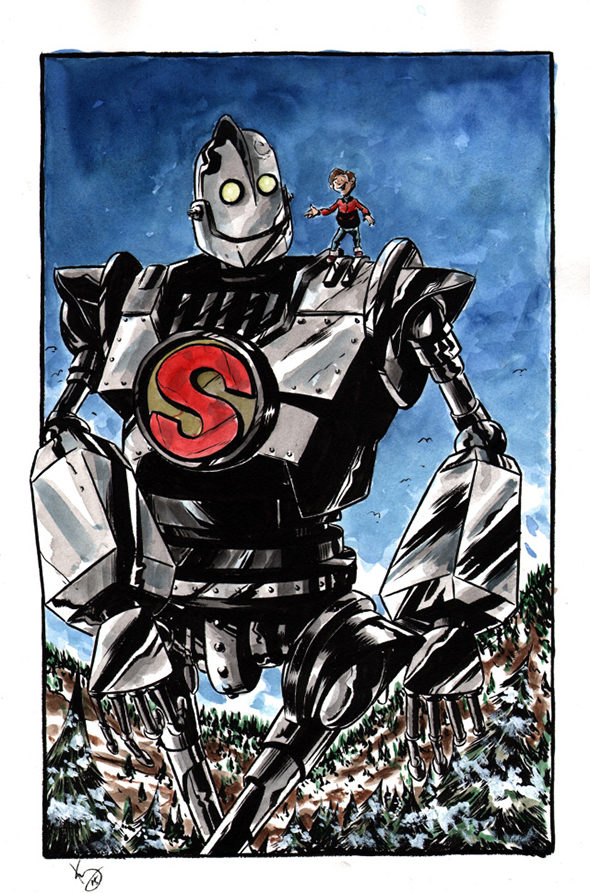
How much of your income is from drawing comics versus doing commissions versus anything else you’re paid for?
It really depends on when you ask me. Comics involve a lot of pitching which means there isn’t always money. Comics is a waiting game. So, sometimes commissions make up for the lack of cash flow.
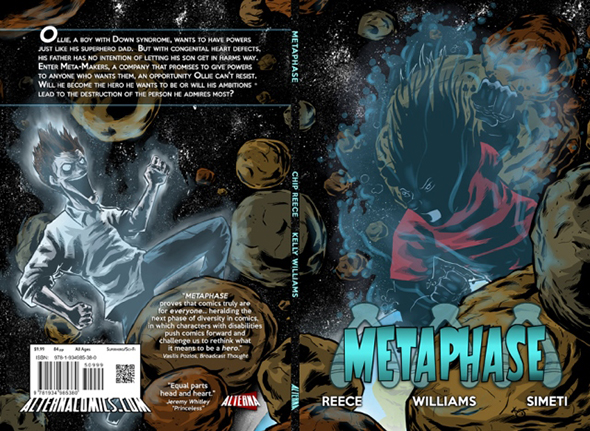
What’s your favorite way to make commercial art (i.e. art that you get paid for)?
I generally view it all the same.
What’s your favorite way to make art, period?
I like to play with new things. I’m more into working traditionally, ink, brush, paper and a mess. I work digitally as well. I actually use both in my everyday stuff. I do the rough layouts for pages and some commissions digitally, print them out and put them on a light box to ink on whatever paper I’m using. I occasionally do full comics digitally, like METAPHASE. That was 100% digital.
Mostly though, ink and watercolor are my main thing.
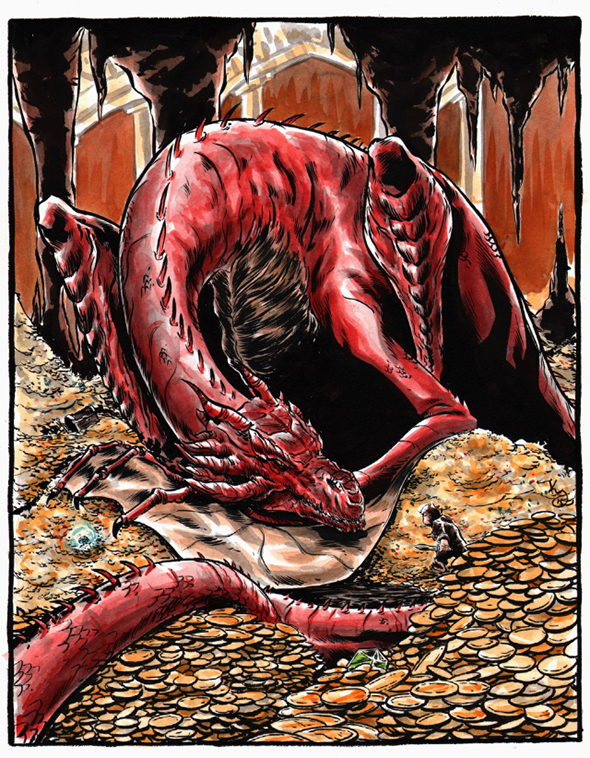
How did you settle on your prices for commissions?
I wouldn’t say I’ve settled on that. [Laughs] I try to be reasonable.
What about for pages and covers?
Again, I try to be reasonable. These things are ever shifting. It’s kind of a project-to-project decision. I’ve been doing it for a while now and I feel more confident asking for a little bit more. But… I don’t know what I’m doing and wing it 99% of the time.
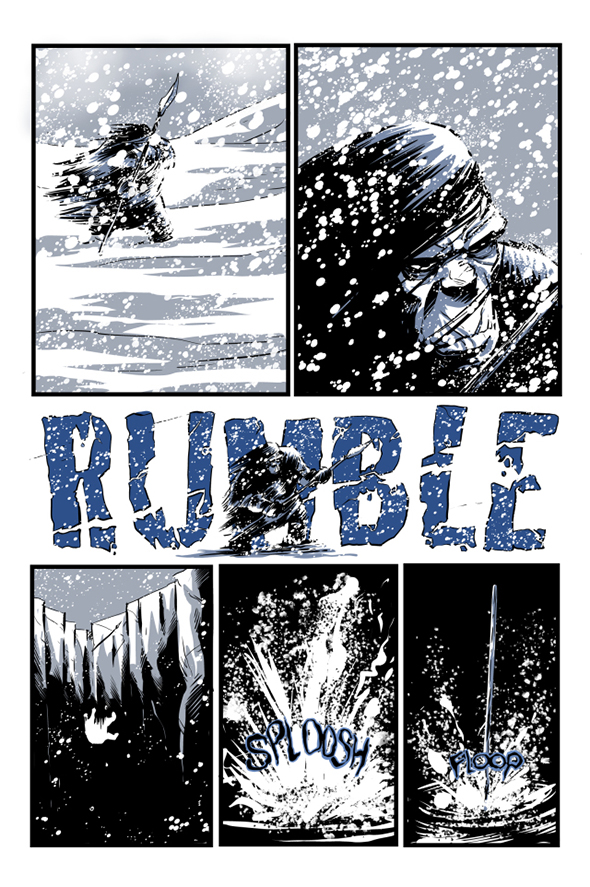
Why does doing watercolors over inked pages appeal to you over coloring digitally?
I think it mostly goes back to what I was saying about preferring to work traditionally. I do some digital coloring and it’s fine. I just kinda enjoy doing the watercolor thing.
I’m also not a huge fan of super digital coloring with effects and stuff. There are some amazing digital colorists out there, though! The ones I like the most are on the simpler side, I guess.
I think that at the end of the day [the preference of watercolors] is mostly [due to] the fact that watercolor works better with my style.
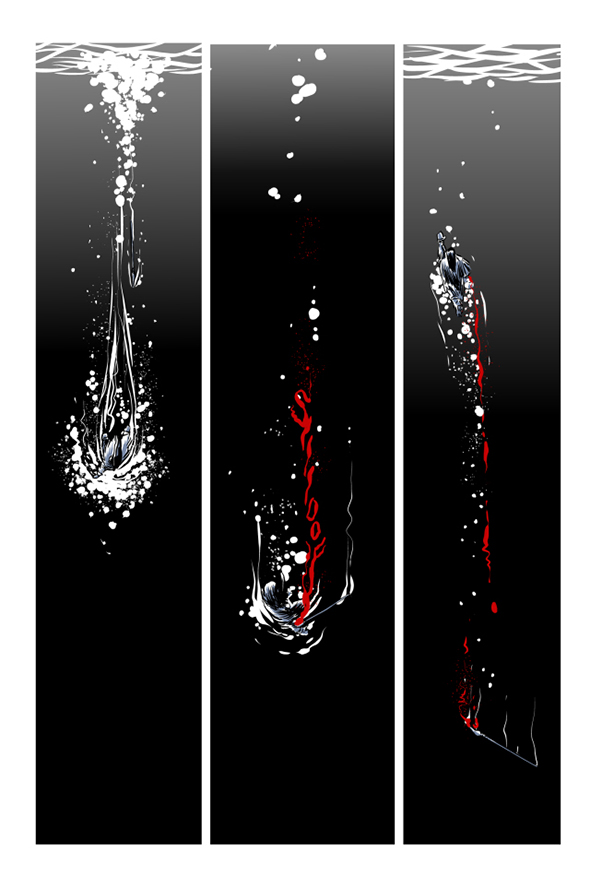
Do you think you’d be making more money off of original art if your pages were from a licensed property?
I have no idea. I suppose so. At least pages that had said licensed property on it, possibly. Like, you might get more for a Teenage Mutant Nina Turtles page if it has some of the Turtles on it, but maybe not so much for a page with just a bunch of people and a taco stand.
Nobody really buys pages from me anyway so, I don’t have a real gauge for that. [Laughs]
How smooth would you describe your collaboration with writers, from making a comic together to getting paid for your services?
I’ve been pretty lucky. I’ve been working with some really great and responsible co-creators. Most of the writers are open and understand that we are a storytelling team. They are open to hearing any input I might have and I’m open to the same. When you work with a writer who views it as “I’ve done my part, this is written and so it shall be” it just kinda kills any enjoyment and causes problems. When you’re working on something like a comic together it’s a relationship. Communication and receptiveness is key. So, yeah, I’m largely lucky on that.
The same can be said for getting paid. I’ve mostly not had any troubles getting paid. That’s not to say I haven’t been stiffed or been taken advantage of, though. You live, you learn.
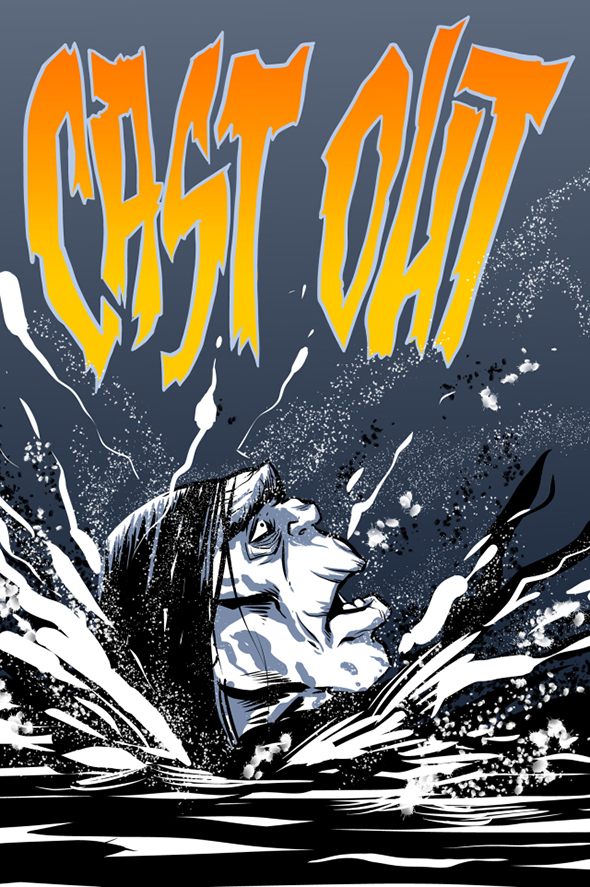
You’ve discussed on Twitter how it can sometimes be advantageous to work for free. In what situations are you willing to work for no upfront pay?
Well, I’ve talked about how doing work for free isn’t always a bad thing. I find it harder for me to work on a project for no money now than it was, say, four years ago.
I see a lot of people on Twitter proclaiming to never work for free. It’s understandable. You deserve to get paid for your work. You should always remember that. BUT, I think sometimes when someone who’s just starting to make a go of it, someone with no “name” or is a mostly unknown, if they see an artist they respect say to “never work for free!” then it may scare them away from potential opportunities.
If you want to make comics, make comics. If you see a small publisher wanting people to submit for an anthology or something [for no upfront pay], why not? It will help you start to get a grasp on what’s kind of commitment working in comics involves, and you’ll be building on your experience as an artist or writer. It’s mostly for you to decide on your own, case to case. Don’t allow yourself to be taken advantage of, but remember that, when you’re starting out, sometimes there’s nothing wrong with making an exception based on your own situation.
[And even as an established artist], we all do the occasional thing to help a buddy out for nothing or next to that.
You regularly post art that you’re doing “just for fun.” What keeps art fun after already doing it for a substantial amount of time as an occupation?
If you want to draw comics one of the requirements is liking to draw. Because you’re going to do A LOT of it. Sometimes just drawing characters that you personally enjoy helps break the monotony of drawing for “work.”
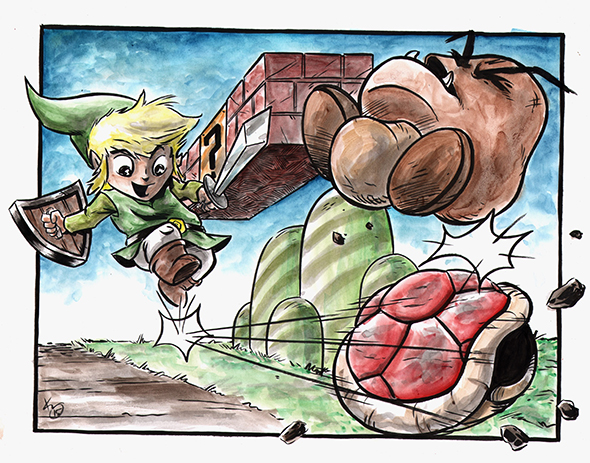
Follow Kelly Williams on Twitter and via his website for art and commentary. And original art fans, get a nice commission from him before he’s too famous to do them.








